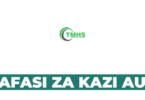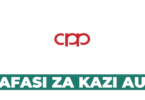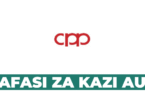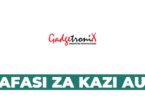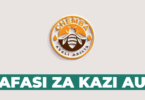The Better Education for Africa’s Rise project, second phase (BEAR II), is a collaboration between UNESCO and Korea to improve Technical and Vocational Education and Training (TVET) systems in five Eastern African countries: Ethiopia, Kenya, Madagascar, Tanzania, and Uganda. The project aims to improve young people’s access to decent employment or self-employment through TVET system improvements. Key areas include increasing TVET relevance to the economy, enhancing trainee quality, and improving TVET perception among young people and society.
This assignment aims to improve skills assessment and anticipation at sectoral and community levels, adapt TVET qualifications and curricula to changing skills needs, and support the establishment of a Monitoring and Evaluation system at Karume Institute of Science and Technology and Morogoro Vocational Teachers Training College.
Specific Objectives
- Establish an M&E System: Develop a robust M&E system at KIST and MVTTC to track the progress and assess the impact of CBT, 21st-century skills integration, and e-learning initiatives.
- Facilitate Decision-Making: Use the M&E system to promote evidence-based improvements in educational practices, ensuring alignment with the evolving needs of the TVET sector.
- Enhance Capacity: Train TVET TTI teachers and managers to effectively implement CBT methodologies, integrate 21st-century skills into curriculum delivery, and leverage e-learning methods.
Scope of Work
1. Define M&E System Objectives
Conduct stakeholder consultations to align M&E system goals with institutional needs. Identify specific data points and performance indicators for CBT, 21st-century skills integration, and e-learning initiatives.
2. Define Roles and Responsibilities
Assign clear M&E roles within KIST and MVTTC. Develop an M&E analysis plan outlining methodologies, timelines, and responsibilities for data analysis and reporting. Create standardized reporting templates for program/initiative comparisons.
3. Design Data Collection Tools
Develop user-friendly data collection tools (e.g., mobile apps, online surveys, offline forms). Establish data validation, cleaning, and analysis protocols.
4. Develop Data Analysis Mechanisms
Analyze data to generate insightful visualizations (dashboards). Define reporting requirements and formats for different stakeholders.
5. Design and Develop M&E System:
Create an intuitive user interface for seamless data collection. Integrate functionalities for real-time and offline data entry. Develop comprehensive data analysis and visualization capabilities. Tailor reporting formats to stakeholder needs.
6. Training and Capacity Building:
Train KIST and MVTTC members on utilizing the M&E system. Foster a culture of continuous learning and adaptation for system improvement. Develop a user manual for the M&E system.
Competencies (Core / Managerial)
- Core Competencies:
- Accountability
- Communication
- Innovation
- Knowledge sharing and continuous improvement
- Planning and organizing
- Results focus
- Teamwork
- Professionalism
- Managerial Competencies:
- Building partnerships
- Leading and empowering others
Comprehensive M&E System:
- Design and development of a digital platform with user-friendly features for data collection (online and offline).
- Robust data analysis capabilities and generation of insightful reports and dashboards tailored to stakeholders’ needs.
M&E Implementation Framework:
- A framework document outlining system objectives, data collection plans, validation and analysis protocols, and reporting requirements.
- Clear roles and responsibilities for M&E activities, with an analysis plan detailing methodologies, timelines, and data ownership.
Capacity Building Materials and Training:
- Training materials and curriculum to equip KIST and MVTTC members with the skills to effectively utilize the M&E system.
- User manuals, training sessions, and documented evidence of training completion.
Duration
The assignment is expected to be completed within three months, between August and October 2024.
Qualifications
- At least 3 years of experience in developing comprehensive M&E systems, including designing and developing digital platforms with user-friendly features for data collection, robust data analysis capabilities, and generating insightful reports and dashboards.
- At least 3 years of experience in establishing M&E implementation frameworks.
- Experience in capacity building and training, including the design of training materials and curriculum.
- Experience engaging with various stakeholders, including government officials and the international community.
- Excellent report writing skills.
Application Procedures
Complete an online application with accurate information and attach your technical and financial proposal. To apply, visit the UNESCO careers website. Note that no modifications can be made to the application once submitted. UNESCO uses communication technologies such as video or teleconference, email correspondence, etc., for assessing and evaluating candidates. Only selected candidates will be contacted further, and those in the final selection step will undergo reference checks.
Footer
UNESCO prioritizes efficiency, technical competence, and integrity in staff appointments, with a zero-tolerance policy against harassment. It encourages candidates from non- and under-represented Member States, minority groups, and disabled individuals. Confidentiality is maintained, and staff appointments require worldwide mobility. UNESCO is non-smoking.
READ ALSO: Human Resource Business partner at CCBRT August 2024

